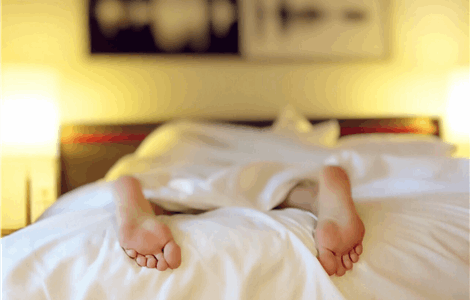
A good night's sleep is critical to your overall health. Actually, it is just as vital as a good diet and workout. However, much may interfere with natural routines of sleep. Here are 10 reasons why good sleep is important and when to call our home GP for insomnia in Costa del Sol.
1. Poor sleep is associated with increased body weight
Short sleep is connected with a higher risk of both children and adults weight growth and obesity. In an extended research, children and adults with a short sleep time were 89% and 55% more susceptible to obesity.
2. Good sleepers are more likely to eat less calories
Poor sleep has an impact on appetite-regulating hormones. Our home GP for insomnia in Costa del Sol explains that those who sleep properly eat less calories than those who sleep poorly.
3. A good sleep can increase focus and productivity
Good sleep may improve your memory and boost problem solving skills. Poor sleep has proven to impair the function of the brain.
Interns on a typical schedule with more than 24 hours of work made 36% more significant medical mistakes than interns on a schedule with more sleep.
Another study revealed that brief sleep might adversely affect certain elements of brain function to a comparable extent as drinking alcohol.
4. Athletic performance can be maximized with good sleep
Sleeping for longer periods of time has been demonstrated to enhance several areas of physical and athletic performance. A longer sleep was proven to greatly increase accuracy, speed, reaction times and mental well-being in a basketball player's research.
A research of more than 2,800 women revealed that inadequate sleep was associated with a greater difficulty performing activities, slower movements, and less strength in grip.
5. People who don't get enough sleep are more likely to get heart disease and stroke
According to a study of 15 research, persons who do not get enough sleep are significantly more likely to get heart disease or stroke than those who sleep seven to eight hours each night.
6. Sleep influences glucose metabolism and the incidence of type 2 diabetes
In healthy people, sleep loss can develop prediabetes in as little as 6 days. In a study of healthy young men, limiting sleep to 4 hours each night for 6 nights in a row resulted in prediabetes symptoms.
After one week of increased sleep duration, these symptoms subsided.
Many studies have found a substantial relationship between insufficient sleep and type 2 diabetes.
7. Sleep deprivation has been related to depression
Poor sleeping habits are closely connected to depression, especially in individuals who suffer from a sleeping problem. Our home GP for insomnia in Costa del Sol explains that sleep quality is a problem for 90% of those who suffer from depression.
8. Sleep boosts your immune system
Getting as least 8 hours of sleep every night might boost your immune system and help you battle the common cold. They discovered that individuals who slept for fewer than 7 hours were nearly three times more likely to have a cold than those who slept for 8 hours or more.
9. Inadequate sleep has been linked to increased inflammation
Sleep has an impact on your body's inflammatory reactions. Sleep deprivation has been related to inflammatory bowel disease and might raise your risk of illness recurrence.
10. Sleep has an impact on emotions and social relationships
Sleep deprivation can impair your social skills as well as your capacity to perceive other people's emotional expressions. Contact our home GP for insomnia in Costa del Sol if you haven’t slept well for the last weeks.
When to call our home GP for insomnia in Costa del Sol
Call our home GP for insomnia in Costa del Sol if:
- Insomnia symptoms persist for more than four weeks or interfere with your daytime activities and ability to function.
- You're worried about waking up several times during the night gasping for air, and you're worried about sleep apnea or other medical conditions that might interrupt sleep.
- You've started taking a new medicine, which may be interfering with your sleep.
- When you try to sleep or when your legs are immobile for lengthy periods of time, you feel an unpleasant, painful "crawling" sensation in your legs (such as when driving or on an airplane flight).
- You have frequent heartburn that keeps you up at night.
- You wake up in the middle of the night owing to bodily discomfort.
- You've observed changes in your mood (such as feeling unhappy), energy, and appetite, which are indicators that your sleeplessness is a symptom of a larger health condition, such as clinical depression.